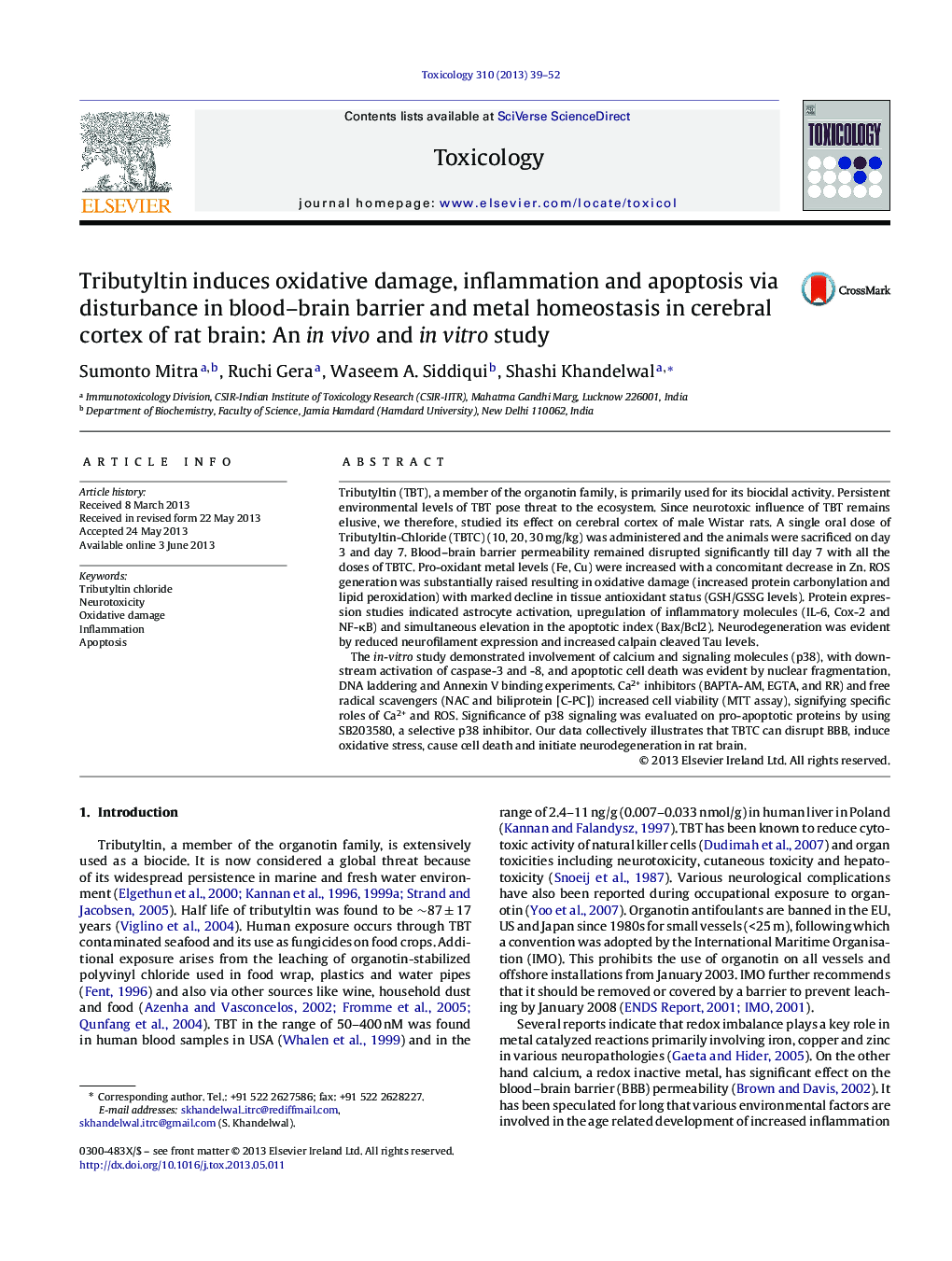| Article ID | Journal | Published Year | Pages | File Type |
|---|---|---|---|---|
| 2595629 | Toxicology | 2013 | 14 Pages |
•Sustainable blood–brain barrier disruption was found by single acute dose of TBTC (up to 1 week).•Imbalance in essential metal homeostasis in the cortical tissue may lead to oxidative stress.•Astroglial activation and inflammation resulted in neuronal loss.•TBTC primarily induced apoptosis as found in in-vitro study via activation of calcium, p38 signaling, ROS and caspases.•Calcium inhibitors and anti-oxidants showed protective efficacy in TBTC induced cell death.
Tributyltin (TBT), a member of the organotin family, is primarily used for its biocidal activity. Persistent environmental levels of TBT pose threat to the ecosystem. Since neurotoxic influence of TBT remains elusive, we therefore, studied its effect on cerebral cortex of male Wistar rats. A single oral dose of Tributyltin-Chloride (TBTC) (10, 20, 30 mg/kg) was administered and the animals were sacrificed on day 3 and day 7. Blood–brain barrier permeability remained disrupted significantly till day 7 with all the doses of TBTC. Pro-oxidant metal levels (Fe, Cu) were increased with a concomitant decrease in Zn. ROS generation was substantially raised resulting in oxidative damage (increased protein carbonylation and lipid peroxidation) with marked decline in tissue antioxidant status (GSH/GSSG levels). Protein expression studies indicated astrocyte activation, upregulation of inflammatory molecules (IL-6, Cox-2 and NF-κB) and simultaneous elevation in the apoptotic index (Bax/Bcl2). Neurodegeneration was evident by reduced neurofilament expression and increased calpain cleaved Tau levels.The in-vitro study demonstrated involvement of calcium and signaling molecules (p38), with downstream activation of caspase-3 and -8, and apoptotic cell death was evident by nuclear fragmentation, DNA laddering and Annexin V binding experiments. Ca2+ inhibitors (BAPTA-AM, EGTA, and RR) and free radical scavengers (NAC and biliprotein [C-PC]) increased cell viability (MTT assay), signifying specific roles of Ca2+ and ROS. Significance of p38 signaling was evaluated on pro-apoptotic proteins by using SB203580, a selective p38 inhibitor. Our data collectively illustrates that TBTC can disrupt BBB, induce oxidative stress, cause cell death and initiate neurodegeneration in rat brain.
